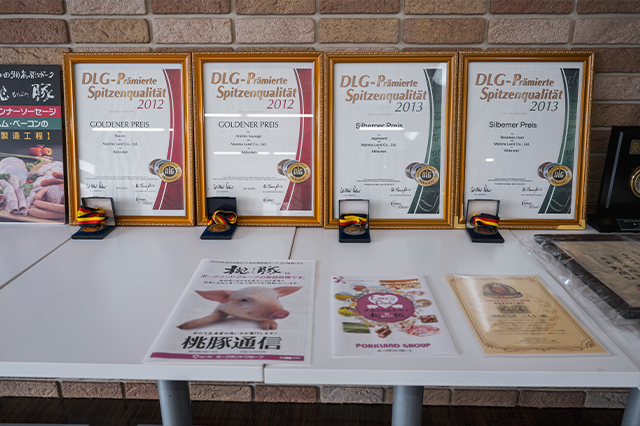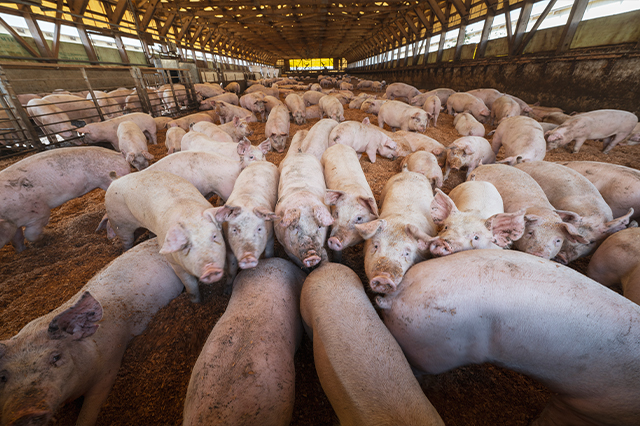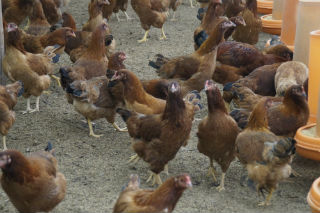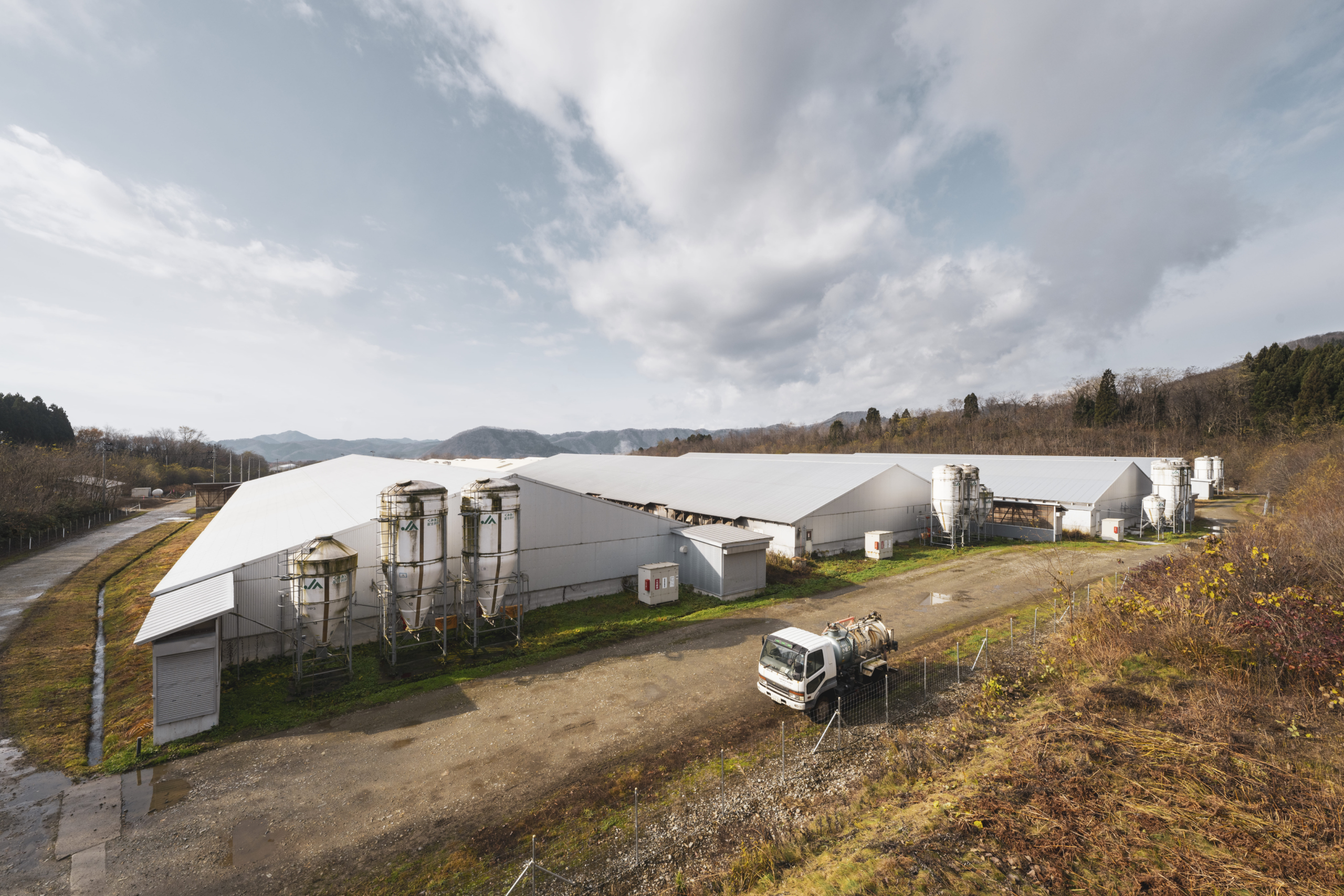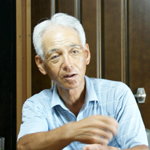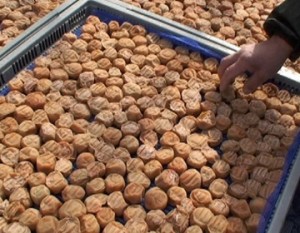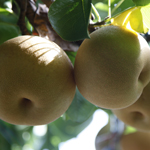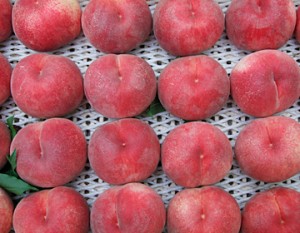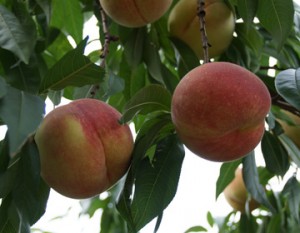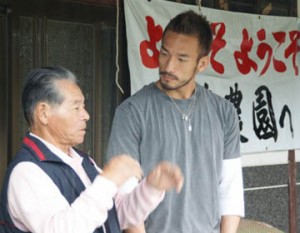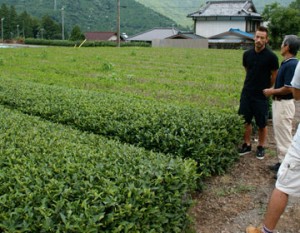Momotobuta, a brand of pork that evokes happiness
Located in the north of the Kazuno Basin that stretches across northern Akita Prefecture, Kosaka Town is blessed with nature, with Lake Towada and its broad-leaved forests. The sea of beech, oak, and katsura trees grow thickly, nurturing humus and bringing limpid water to the area. Katsuhiko Toyoshita, president of the Porkland Group, decided to make use of this unchanged natural environment in agriculture and pig farming.
The Porkland Group, which started in 1995 with 1,500 sows, now has four farms, “Porkland,” “Towadako Kogen Farm,” “Farmland,” and “Bioland,” shipping “Momobuta,” which are SPF pigs (clean pigs) free of pathogens specific to pigs. SPF stands for “Specific” and “Pathogen” free, meaning that the pigs do not have any pre-designated pathogens. Momotobuta” is a brand of pork originally bred by the Porkland Group. The name “Momotobuta” was derived from the light pink color of the meat and the fact that pink is associated with happiness, with the hope that both the pigs and the people who eat them will be happy. Today, the Porkland Group has grown into a large-scale pig farm, shipping approximately 150,000 head of pigs annually.
Twenty-six years ago, Toyoshita entered the industry with no experience in livestock farming. Perhaps that was a good thing, he says. In those days, antibiotics and other chemicals were used in pig farming, and that was the norm, he says. He simply did not want to eat such pigs himself, so he decided to start a pig farm that pursued “food safety” and sought a method of fattening pigs that did not rely on antibiotics and chemicals. If you don’t use chemicals, you can’t make pigs sick. Mr. Toyoshita came up with BMW technology, which stands for B=bacteria, M=minerals, and W=water, a technology that uses bacteria in the soil and minerals in the stones to purify sewage. This technology has been spreading around the world in recent years as more and more farmers aim for organic farming based on natural recycling.
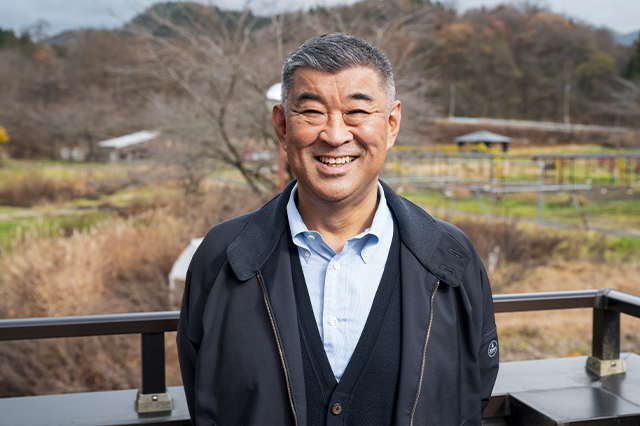
We want to bring happiness to pigs and humans alike.
In addition, since pigs are vulnerable to disease, thorough quarantine control is implemented to prevent the introduction of disease into the farm. Only special vehicles are allowed to drive around the farm, and of course, special vehicles are also used for shipments. In addition, staff who enter the piggery must take a shower before entering. By completely separating the inside from the outside of the farm in this way, the Porkland Group has been certified as a “SPF farm” by the Japan SPF Pork Association, which is known for its rigorous screening process.
When I visited the piggery, I found that it did not have the strong smell of a normal piggery, and many pigs were moving around with lively expressions on their faces. We are also committed to animal welfare. We want to minimize stress and suffering for the pigs so they can live happily on the Porkland farm until they are shipped out. In the end, doing so is a shortcut to growing delicious pigs,” says Toyoshita. Animal welfare is a concept originating in Europe that aims to realize the psychological well-being of animals by minimizing the pain, stress, and other suffering inflicted on them by humans. Animal welfare for domestic animals lists five freedoms: freedom from hunger and thirst, freedom from physical pain and discomfort, freedom from pain, suffering, and discomfort, freedom from normal behavior, and freedom from fear and grief.
Regarding pig feed, Toyoshita also wanted to do something about the current bias toward imported grain. With the world’s population increasing, if imports were to cease, Japan’s food supply would quickly come to the brink of crisis. Therefore, he began to cultivate rice for animal feed in the fallow rice paddies in the region, and used it to feed his pigs. At first, they used only about 10% of the rice, but they have now increased that to 30%. Toyoshita is confident in the taste of Momo Pork, saying, “Since we increased the amount of rice, the fat has become softer and softer without any smell. Akita’s beautiful nature nurtures the pigs, which are raised using a recycling-oriented agricultural method. The quality of the pigs produced there is steadily spreading.
When we, as consumers, take a fresh look at the life of a pig, whether or not it has spent its life happily may be a more important quality than freshness.
